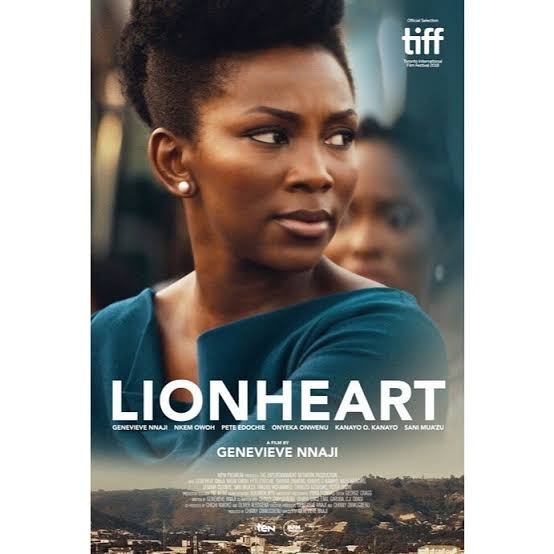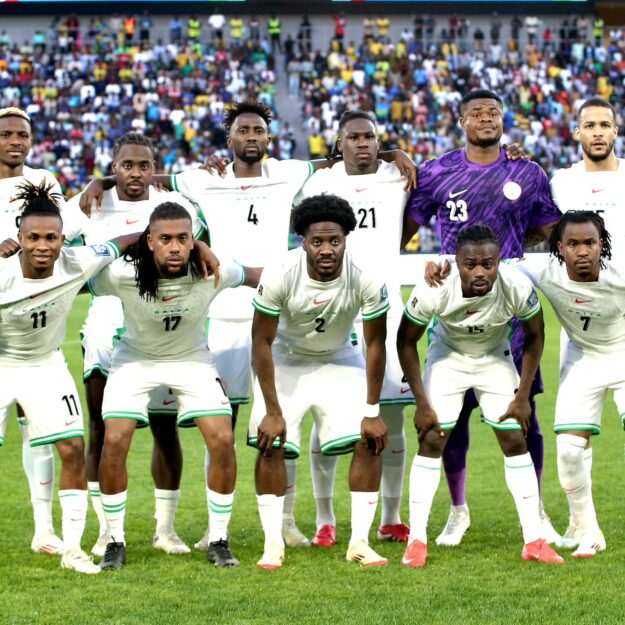
Submissions for the best international feature film award at the 2020 Academy Awards have started to come in, and Screen is keeping a running list of each film below.
This is the first year the award will be given under the new name of ‘best international feature film’, after a change in April from ‘foreign-language film’.
theatrically in their respective countries between October 1, 2018, and September 30 2019.
Screen’s interview with Mark Johnson, chair of the Academy’s foreign-language film committee, explains the shortlisting process from submission to voting.
2019’s award saw 87 submissions, with nominations for Lebanon’s Capernaum, Poland’s Cold War, Germany’s Never Look Away and Japan’s Shoplifters, with the award going to Alfonso Cuarón’s Mexican family drama ROMA.
The 92nd Academy Awards will take place on February 9, 2020, at the Dolby Theatre in Los Angeles, US.
Latest submissions
Kazakhstan: Kazakh Khanate – Golden Throne (Rustem Abdrashev)
Abdrashev’s latest feature is the second part in the telling of the rise of the Kazakh nation during the times of the medieval Khanate. It is set during the 15th century and follows 2017’s Diamond Sword. Kazakhstan’s best Oscar result came in 2008, when Sergei Bodrov’s Mongol was nominated for the award. Ayka from Sergey Dvortsevoy made the January shortlist in 2019, as did Ermek Tursunov’s Kelin in 2010.
Nigeria: Lionheart (Genevieve Lionheart)
This is a significant moment for the Oscars, with the country that boasts one of the largest film industries in the world – the famed Nollywood – entering the international feature competition for the first time. Nollywood star Nnaji made her directorial debut with the film at Toronto 2018. She also stars as Adaeze, a woman in a male-dominated industry who steps up to run her father’s company when he falls sick and must work alongside her incompetent uncle. It is the first Netflix Original title to come from Nigeria. The choice was made by the 12-person Nigerian Oscars Selection Committee, which was inaugurated in 2014 but unable to find a film meeting the selection criteria until now.
Senegal: Atlantics (Mati Diop)
Submitted at the last minute, does Mati Diop’s romantic drama stand a chance of securing Africa’s first nomination in this category since Mauritania’s Timbuktu in 2015? That remains to be seen, but it has decent credentials, launching in Competition at Cannes 2019, making Diop the first black woman to gain that achievement. Even better, it picked up the Grand Prix, with Diop becoming only the fourth woman ever to direct a Grand Prix-winning film. The film is a portrait of forbidden love in a Senegalese seaside town. Senegal’s only previous entry to the award came for the 2018 ceremony, with Alain Gomis’ Berlin Grand Prix winner Félicité making the December shortlist the previous winter.
Europe
Albania: The Delegation (Bujar Alimani)
Albania’s 12th Oscar entry is a drama about a delegation from Europe visiting Albania’s capital Tirana in 1990, to oversee the transition out of Communism. It is Alimani’s third time representing the country in the international feature category, after Amnesty in 2012 and Chromium in 2017. The country has no nominations to date. It launched at Warsaw Film Festival in October 2018 and won best feature at Trieste Film Festival the following year.
Armenia: Lengthy Night (Edgar Baghdasaryan)
This historical drama follows three stories set across a thousand years of Armenian history, each featuring the same strange stone. One involves a couple under stress in 2015; another is set during the Armenian Genocide of 1915; with a third in the distant past of the 11th century. Of seven previous entries since 2001, Armenia has no nominations so far.
Austria: Joy (Sudabeh Mortezai)
German-born Mortezai brought her fourth feature to Venice in 2018, where it played in Venice Days and won the Europa Cinemas Label. It gives a modern view of the sex slave trade through the bitter experiences of two Nigerian women forced into European prostitution. This is Austria’s 43rd submission to the international award; it has won twice, in 2013 for Michael Haneke’s Amour and 2008 for Stefan Ruzowitsky’s The Counterfeiters, and received two nominations for Götz Spielmann’s Revanche in 2009 and Wolfgang Glück’s ’38 – Vienna Before The Fall in 1987.
Belarus: Debut (Anastasiya Miroschnichenko)
One of a small number of documentaries submitted to the international feature award this year, Miroschnichenko’s film looks at how the soulless atmosphere of a female prison destroys their personal and collective identities as women. This is only Belarus’ fourth submission to the international award; entries for 1995, 1997, and 2019 did not bring any nominations.
Belgium: Our Mothers (César Díaz)
The film chronicles the long-lasting ramifications on women of the 1980s Guatemalan civil war. The film won the prestigious Caméra d’Or at Cannes this year; Emma Dib and Armando Espitia star. Belgium has had seven nominations for this prize with no wins, most recently for Felix Van Groeningen’s The Broken Circle Breakdown in 2014. This is Díaz’s first fiction feature after the documentaries Territorio Liberado (2014) and Why Do Humans Burn? (2010). Pyramide International is handling international sales.
Bosnia and Herzegovina: The Son (Ines Tanović)
The Son premiered at Sarajevo International Film Festival in August and tells the story of an 18-year-old adopted man struggling with his identity. It is Tanović’s second feature after her 2015 debut Our Everyday Life. Danis Tanović’s No Man’s Land was the only film from the country to win the prize, in 2001.
Bulgaria: Aga (Milko Lazarov)
Aga is director Lazarov’s second feature after his Venice 2013 debut Alienation. The film follows two Yakuts struggling to adapt to the changing world around them. When one falls ill, the other must journey to find their daughter. It closed the 2018 Berlinale, playing out of competition, and won the Heart Of Sarajevo prize for best film in the same year.
Croatia: Mali (Antonio Nuić)
Croatia has submitted to the international award every year since the year following its independence in 1991 but is yet to receive a nomination from 27 previous entries. Nuić’s Mali centres Frenki, a drug dealer recently released from prison who fights for custody of his son. The film launched at the country’s Pula Film Festival in July 2018.
Czech Republic: The Painted Bird (Václav Marhoul)
Vaclav Marhoul’s Second World War drama was one of the more controversial titles to play in the Venice 2019 Competition, thanks to its graphic depictions of violence. It follows a young Jewish boy and the characters he encounters as he travels across Eastern Europe seeking refuge. After Venice, it played in Toronto, with further festival bookings including London Film Festival and Chicago. The Czech Republic’s 25 previous Oscar entries have brought one win, in 1997 for Jan Svěrák’s Kolya. It was also nominated in 2001 for Jan Hřebejk’s Divided We Fall and in 2004 for Ondřej Trojan’s Želary.
Denmark: Queen Of Hearts (May el-Toukhy)
Trine Dyrholm stars in May el-Toukhy’s drama about a woman who risks everything for an illicit relationship with her teenage stepson. The film won the ‘world cinema – dramatic’ audience award at its Sundance 2019 launch and has since sealed international sales deals around the world. Denmark is one of the most successful countries in the foreign-language category, with 12 nominations and three wins from 56 previous entries. The top prizes came for Susanne Bier’s In A Better World in 2011; Bille August’s Pelle The Conqueror in 1989; and Gabriel Axel’s Babette’s Feast in 1988. Including Bier’s win, the country has six nominations in the last 13 ceremonies. Read the full story here.
Estonia: Truth And Justice (Tanel Toom)
Sixteen Estonian films have been submitted for this category, with one nomination for Zaza Urushadze’s 2013 film Tangerines. Toom’s feature debut tells the story of a man who wants to transform his poor land into a prosperous farm in 1872 Estonia. Priit Loog, Priit Võigemast and Ester Kuntu star.
Finland: Stupid Young Heart (Selma Vihunen)
Vihunen’s sixth feature launched in Contemporary World Cinema at Toronto 2018, before going on to win the Crystal Bear in the Generation strand at the Berlinale this year. Jere Ristseppä and Rosa Honkonen star in a drama about two teenagers having to deal with pregnancy before they are ready for it. This is Finland’s 33rd submission to the international feature award; it has yet to win, with high points being a nomination for Aki Kaurismäki’s The Man Without A Past in 2003 and Klaus Härö’s The Fencer making the December shortlist in 2015.
France: Les Misérables (Ladj Ly)
Based on his short of the same name, Ladj Ly’s feature debut was perhaps a surprise pick as France’s entry, beating out strong competition from Céline Sciamma’s fellow Cannes Competition title Portrait Of A Lady On Fire and Alice Winocour’s astronaut drama Proxima. That said, it launched to strong reviews in Cannes and its subject matter – inspired by France’s 2005 riots and following three members of an anti-crime brigade – is extremely topical. France is one of the most successful countries in the history of the foreign-language award. It won three honourary awards prior in 1949, 1951 and 1953 prior to the introduction of the current system, and since then has earned 37 nominations and nine victories from 63 submissions. The last win came in 1993 for Régis Wargnier’s Indochine and the last nomination in 2016 for Deniz Gamze Ergüven’s Mustang. Read the full story here.
Georgia: Shindisi (Dito Tsintsadze)
This film is based on events that took place during the Russian military intervention of Georgia in 2008. The film stars Dato Bakhtadze, Giorgi Tsaava and Goga Pipinashvili. This is Georgia’s eighteenth nomination, with its first submission, the 1996 film A Chief In Love (1996) being its only nomination to date. Tsintsadze has directed thirteen films including Lost Killers (2000) which played in Un Certain Regard section at Cannes.
Germany: System Crasher (Nora Fingscheidt)
Fingschedit’s fiction debut following 2017 doc Ohne Diese Welt follows a nine-year-old who, when failed by the health system, descends into a deep and dark pit of psychosis. It won the Alfred Bauer award in competition at this year’s Berlinale and stars Helena Zengel, Albrecht Schuch, Gabriela Maria Schmeide and Lisa Hagmeister. Beta Cinema handles international sales. Germany has been nominated for the award 11 times since reunification in 1990, with two wins for Caroline Link’s 2001 Nowhere In Africa and Florian Henckel von Donnersmarck’s 2006 The Lives of Others. Read the full story here.
Greece: When Tomatoes Met Vagner (Marianna Economou)
Greece received four nominations from its first 10 Oscar entries from 1958 to 1978; since then only one has come, for Yorgos Lanthimos’ Dogtooth in 2011, with no wins at all. After debuting in the Berlinale’s Culinary Cinema section in 2019, Economou’s debut feature received the FIPRESCI award for best Greek film at Thessalonki Documentary Festival. It chronicles the lives of families producing tomatoes and honey in a small Greek village.
Hungary: Those Who Remained (Barnabás Tóth)
After an extensive shorts career, Tóth’s feature debut focuses on 42-year-old doctor and concentration camp survivor Aldo, his new friendship with 16-year-old Klara, and the suspicion it brings in Soviet Hungary. The film debuted at the recent Telluride Film Festival and is set for a release in Hungary in September 2019. The country recently won the foreign-language award for Lázló Nemes’ Son Of Saul in 2016, with one other win for Istaván Szabó’s Mephisto in 1982 as part of 10 total nominations.
Iceland: A White, White Day (Hlynur Palmason)
Palmason’s drama is set in a remote Icelandic town, where an off-duty police officer begins to suspect a local man of having had an affair with his recently-deceased wife. It launched in Critics’ Week at Cannes 2019, where lead actor Ingvar Sigurdsson won the Rising Star award. This is Iceland’s 40th Oscar entry; the country’s best result came in 1992 when Friðrik Þór Friðriksson’s Children Of Nature achieved a nomination. Baltasar Kormákur’s The Deep made the January shortlist in 2013.
Italy: The Traitor (Marco Bellocchio)
Bellocchio represents Italy in the international feature category for the third time, following China Is Near in 1968 and A Leap In The Dark in 1981, neither of which hit the nomination stage. His latest title stars Pierfrancesco Favino as Tommaso Buscetta, a Mafia member who began working with Italian and American prosecutors following an internal family conflict. It launched at Cannes 2019 in Competition. Italy has a strong history in the section, winning honourary prizes for its first three entries before it became a competitive category, including for Vittorio De Sica’s The Bicycle Thief in 1950. From 62 entries in the competitive years, the country has secured 28 nominations and eleven wins, including two further wins for De Sica and four for Federico Fellini.
You may be interested

NPFL: Defeat To Kwara United Painful — Nasarawa United Boss Yusuf
Webby - March 27, 2025Nasarawa United head coach Salisu Yusuf has reacted to his team’s 1-0 loss to Kwara United, reports Completesports.com. Emeka Onyema…

Cote d’Ivoire Withdraw As Host Of U-20 AFCON
Webby - March 27, 2025Cote d’Ivoire announced late Tuesday its withdrawal from hosting the 2025 U-20 Africa Cup of Nations just weeks before the…

2026 WCQ: Osimhen’s Goal Not Enough As Zimbabwe Hold Super Eagles In Uyo
Webby - March 25, 2025The Super Eagles of Nigeria were held to a 1-1 draw by Zimbabwe in their 2026 FIFA World Cup qualifying…




















![American Pastor, David Wilson Seen Eating The Box Of Woman Who Isn’t His Wife [Video]](https://onlinenigeria.com/wp-content/uploads/2019/10/american-pastor-david-wilson-seen-eating-the-box-of-woman-who-isnt-his-wife-video-150x150.jpg)








